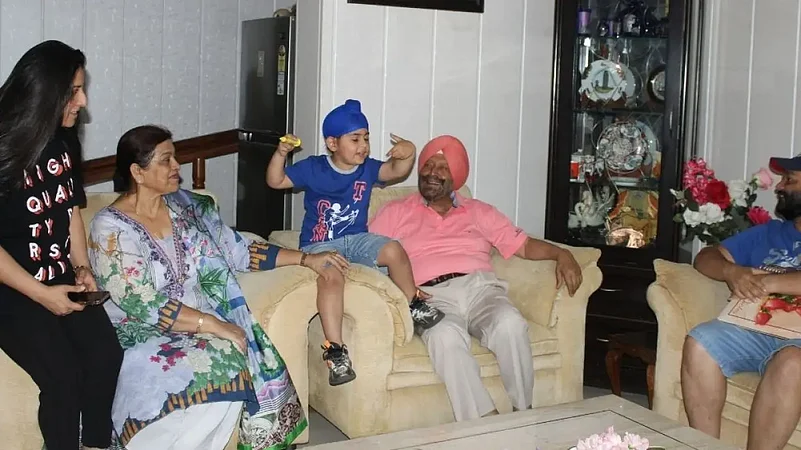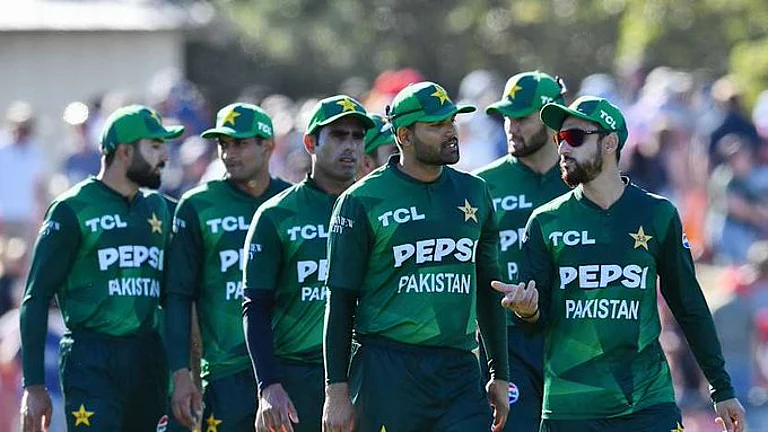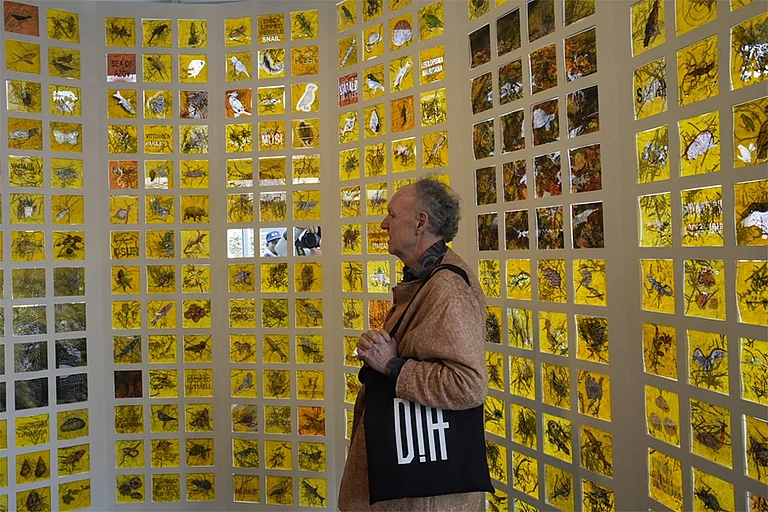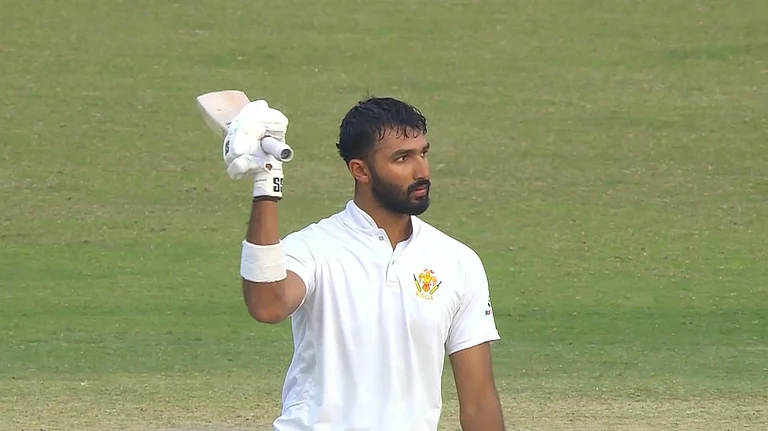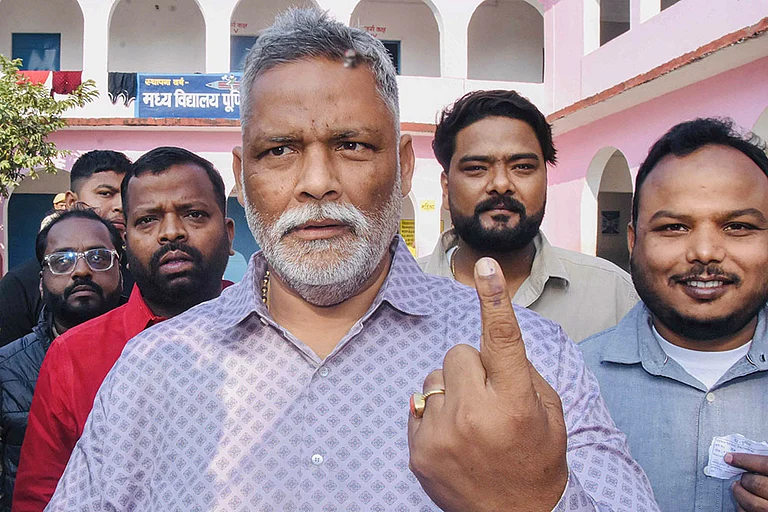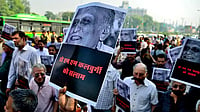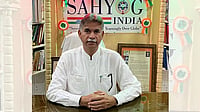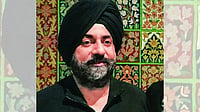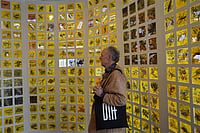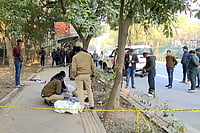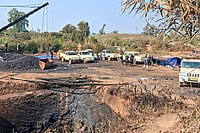On March 20, Union Minister Jitendra Singh said that after the abrogation of Articles 370 and 35 A, the Bharatiya Janata Party (BJP) government at the Centre will keep its pledge to ‘liberate’ Pakistan Occupied Jammu and Kashmir (POJK) and integrate it with the country. He made the remark while addressing a public gathering in Jammu's Kathua district.
But seemingly, his words failed to excite the displaced families from POJK that came to Jammu after Pakistan Army regulars and tribal raiders invaded Jammu and Kashmir (J&K) in October 1947.
The oft-repeated promise has kept them deprived of their existential status — whether they are ‘Refugees’ or ‘Internally Displaced Persons’ due to official indecision amid ongoing border disputes between the two countries. Consequently, the displaced families have been denied financial compensation for the loss of land and property that they left behind across the Line of Control (LoC) — a de-facto border that divides J&K between India and Pakistan besides several other entitlements.
“Successive governments told us that POJK territory will be retrieved and the Displaced Persons (DPs) will be sent back to their homes,” says Colonel Tawinderjit Singh Modi (retired), who is going to turn 80 next month.
Modis were one of the 26,319 displaced families that took refuge in Jammu soon after Sikhs and Hindus were either killed or driven out of Mirpur, Muzaffarabad, Bhimber, Kotli, Bagh and Rawalakot, areas that constitute the POJK.
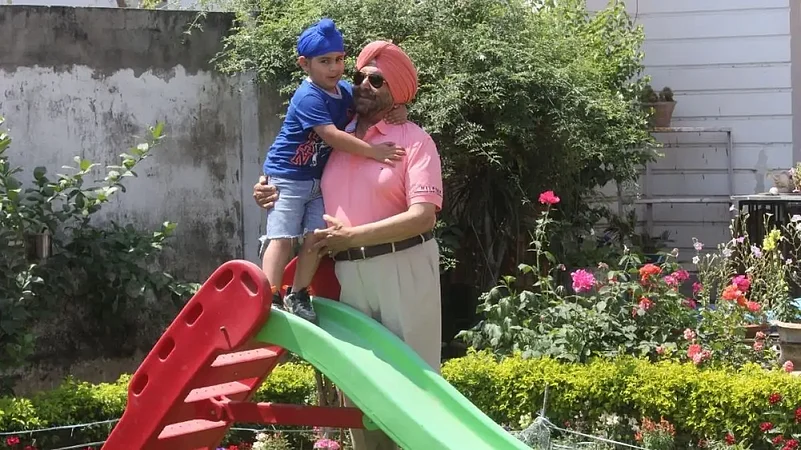
Modi has vivid memories of his childhood that he spent in his native village Dadyal in Mirpur, which is about 200 km from Lahore. Sitting at his Gandhi Nagar home in Jammu, Modi tells Outlook, “Our family elders would ride horses to survey the farms — which were cultivated by the local Muslim farmhands.”
Claiming that his family had a huge sum of money deposited in the Rawalpindi branch of Punjab-Lahore Bank, he says, the family lost that amount too following their displacement.
At the time of the Partition, Modi adds, “Maharaja Hari Singh had given us instructions that Jammu and Kashmir will be an independent country regardless of India and Pakistan.”
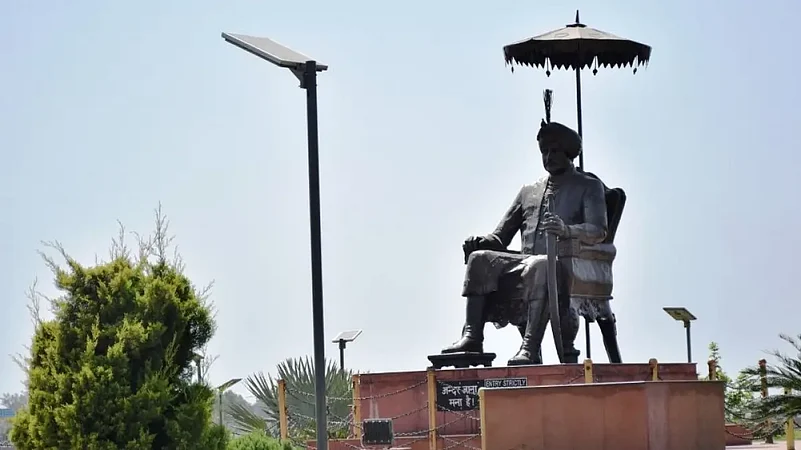
Neither here nor there
On February 22, 1994, the Parliament unanimously adopted a resolution that the entire J&K, POJK included, has been, is and shall be an integral part of India.
“We have consistently called upon Pakistan to immediately vacate all areas under its illegal and forcible occupation, and to put an end to the human rights violations and desist from continued attempts to bring material change in these territories,” the Union Ministry of External Affairs told the Parliament on March 11, 2020, through a written reply.
The fresh maps issued by the Government of India in November 2019 following revocation of the special status of Jammu and Kashmir, showed POJK is part of the newly created Union Territory of Jammu and Kashmir, while Gilgit-Baltistan is in the UT of Ladakh.
But the stand of previous governments was no different, according to Rajiv Chuni, who runs SOS International, an organisation working for the rights of the displaced POJK families.
“The previous governments would tell us that the payment of financial compensation would jeopardize India’s case at the United Nations,” Chuni tells Outlook, adding, “Even today, the government seems to be entertaining the same old idea that if it provides compensation to the POJK DPs against the loss of their moveable and immovable properties, it would send a message that India has decided to forgo the territory.”
On the abrogation of Article 370, which permitted J&K to draft its own Constitution and 35 A that prohibited non-locals from buying immovable property and seeking government jobs in the region, Chuni says, “We supported the government move as we expected that our longstanding demands will be fulfilled finally. But our situation remains the same.”
Notably, the former state assembly of J&K had 24 seats reserved for the POJK. “In the assembly of the Union Territory, as per our old demand, at least one-third of the frozen seats should be considered as floating constituencies or constituencies in exile to politically empower the POJK DPs in J&K’s assembly and Indian Parliament,” says Chuni, citing the example of the Assembly segment of Habbakadal for which migrant Kashmiri Pandits cast votes from anywhere in India.
Accusing successive J&K governments of harbouring a religious bias against the DPs from POJK, Chuni says, “This started when thousands of the displaced families — which entered Kashmir Valley from the adjoining Muzaffarabad — were pushed towards Jammu irrespective of the fact that Kashmir was climatically more suitable to them.”
According to him, apart from 26,319 POJK displaced families in Jammu, at least 5300 are settled outside J&K whereas 9500 were not registered on flimsy ground.
“The registration of DPs started in 1960,” he says, adding, “the government doesn’t have the record regarding a total number of people from Hindu and Sikh communities who were killed in POJK in 1947.”
In just Mirpur, which was attacked on November 24, Chuni says, “It is estimated that over 40,000 people — including Hindus and Sikh refugees from Pakistan who had taken refuge in Mirpur hoping they would be safe in a state ruled by a Hindu Maharaja — were massacred.”
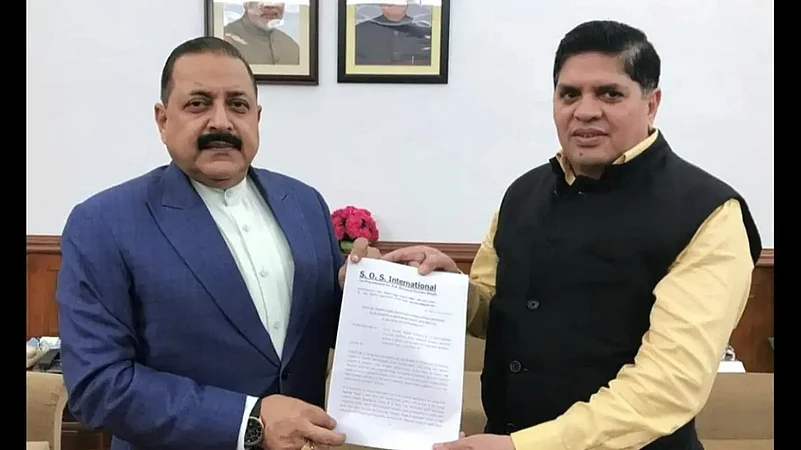
Camps become homes
In Jammu, the POJK displaced community observes October 22, the day Pakistan forcibly invaded J&K and captured the territory as “Black Day”.
Modi remembers how his family fled Dadyal -- which sits at the border of the Pakistani Punjab and Jammu and Kashmir -- in early November 1947. Instead of going across the river Jhelum to Sialkot in adjoining Punjab or taking the roads that led to Uri via Abbottabad, the Modis chose the most treacherous route to reach Jammu. They undertook a foot journey — which would take fully four days — via Jhangar, Nowshera and then the outer Himalayan hills called Kaali Dhaar.
En route, as many as 87 people of the extended family either got killed or chose to kill themselves instead of getting brutalized at the hands of the marauding Kabaili raiders. One of his aunts was abducted by the attackers whereas others killed their young daughters and womenfolk, Modi recounts the past events as he gets choked with emotion.
“Our feet were bleeding when we reached Jammu,” he says. “When my uncle — who lived a royal life back home — got the job of a cart puller in Jammu city, he had tears of joy in his eyes realizing that ultimately the family would have something to eat at the end of the day.”
Eventually, Modis were allotted a house at the old city’s Wazarat road by the department of Custodian Evacuee Property, Jammu. “The house belonged to a Muslim family that had either gone to Pakistan or got killed in the massacres,” he says.
The majority of the DPs from POJK were allotted tents at “Refugee Camps” in Bhor, Chatha, Simbal, Gadigarh, Badyal Brahmana, Keerian Gandyal and Raj Bagh on the peripheries of Jammu city.
Over the years, the camp dwellers constructed homes where they used to live in tents. The names of these places, however, continue to be addressed as Camps even in official records.
In rural areas, the displaced POJK families were allotted agricultural land that belonged to Muslims who migrated to Pakistan in 1947 amid communal tensions. In some cases, the government provided plots to them for constructing homes. “But we didn’t get the ownership rights as a result of which our people can’t sell the property or mortgage it to avail the bank loans,” says Chuni.
Concerns and worries
Referring to ‘The Kashmir Files’ — a recent Bollywood movie based on the exodus of Kashmiri Pandits during the nineties — Chuni, who also edits a daily, Refugee Message, says, “The entire narrative around the film is an attempt at distorting the history of J&K. Today, you will find not even a single Hindu or Sikh family in the POJK — either they have been killed or forcibly converted — whereas Pandits are still living and working in Kashmir.”
“We are the real victims of genocide and the Kashmir conflict. But what did the government do for us or our children?” he asks.
In October 2014, the Congress and the National Conference state coalition government headed by Omar Abdullah had passed a cabinet resolution and sent it across to the Government of India. It promised an ex-gratia grant amounting to Rs 25 lakh to the 31,619 registered POJK families besides 8500 jobs for the educated unemployed youth and reservations across all the institutions of technical and higher education.
“But the new government at the Centre has been providing the grants in instalments. Only half of the displaced families have received the grants so far whereas we are yet to get the benefits under other components of the package,” says Chuni, describing the relief as too little too late. “The displaced families have grown into over three lakh families in just the Jammu region. And a vast majority of them has been living an impoverished life.”
While displaced persons like Modi are also yet to receive even the first instalment of the grant, the Union Ministry of Home Affairs recently extended the scheme up to 2026 following a lot of hue and cry.
Chuni slams the ‘cumbersome’ formalities related to the scheme. “The government needs to implement the same method that was adopted for the disbursement of monetary relief among West Pakistani Refugees,” he says, wondering why the government has been using two yardsticks for two sets of the displaced people.
With regard to those who had their accounts in the Mirpur branch of the J&K Bank, Chuni asserts, “The account holders or their legal heirs must be paid money with interest compounded from November 1947.”
Demanding that the Displaced Persons (Compensation and Rehabilitation) Act, 1954 under which the DPs from West Punjab and East Bengal were settled permanently were settled, must also be applied in their case, Chuni emphasises, “This is the reason that the families of former prime ministers of India like Manmohan Singh and Inder Kumar Gujral besides deputy prime minister LK Advani were treated differently irrespective of the fact that all of us had to leave Pakistan under similar circumstances.”
“We want the government to start settling the claims of our property left behind in POJK at the present market rate without any further delay,” he says, adding, “We can’t wait for another 70 years.”
Submerged hopes
Ironically, even if the words uttered by Union Minister Jitendra Singh turn out to be prophetic soon, Tawinderjit Singh Modi and Rajiv Chuni can’t visit their ancestral homes.
During the 1971 India-Pakistan war, when Modi was a Captain with the 11 Gorkha Rifles, he got hold of a wounded Pakistani soldier, Ahmed, at village Daruchian in Mendhar sector of J&K.
While others wanted to kill him, Modi took him as a Prisoner of War. Lo and behold, Ahmed turned out to be a resident of his ancestral village Dadyal and recognized Modi as “Shahon Ka Beta”.
“Ahmed told me that ‘your village was set to submerge after the construction of Mangla Dam,” recalls the retired colonel, his eyes moist with tears.
Further, speaking about the World Bank and Asian Development Bank-funded project, Chuni adds, “Our ancestral home was in the middle of the old Mirpur city that has gone underwater completely. Whenever the level of water goes down, we get to see the pictures of the famed Raghunath temple on Facebook.”






